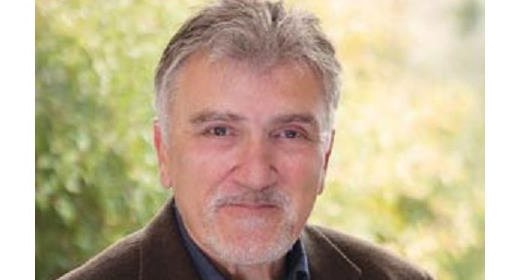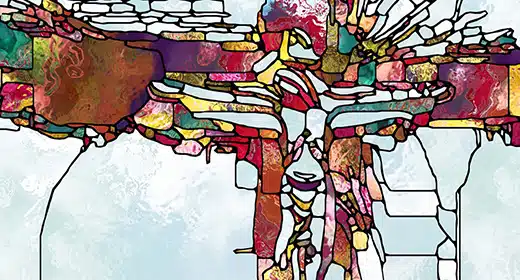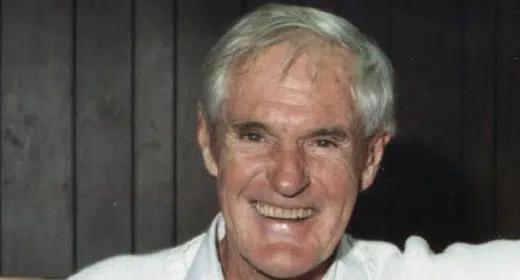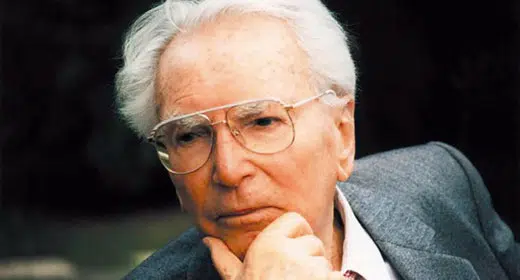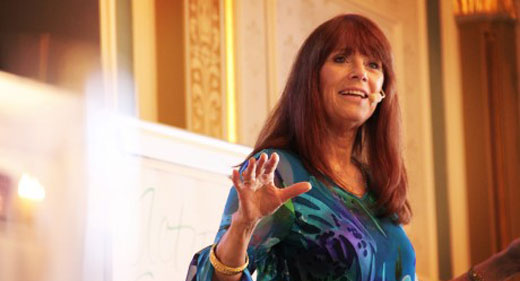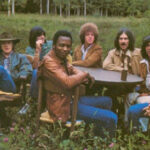by Bob Thurman continued from Seven Steps to Cultivating Compassion Part 1 And so he looked very dubious, Asanga did. And he said, “If you don’t believe me, just take me with you.” And so he took the Maitreya — it shrunk into a globe, a ball — took him on his shoulder. And he ran into town in the marketplace, and he said, “Rejoice! Rejoice! The future Buddha has come ahead of all predictions. Here he is.” And then pretty soon they started throwing rocks and stones at him — it wasn’t Chautauqua, it was some other town — because they saw a demented looking, scrawny looking yogi man, like some kind of hippie, with a bleeding leg and a rotten dog on his shoulder, shouting that the future Buddha had come.
And so he looked very dubious, Asanga did. And he said, “If you don’t believe me, just take me with you.” And so he took the Maitreya — it shrunk into a globe, a ball — took him on his shoulder. And he ran into town in the marketplace, and he said, “Rejoice! Rejoice! The future Buddha has come ahead of all predictions. Here he is.” And then pretty soon they started throwing rocks and stones at him — it wasn’t Chautauqua, it was some other town — because they saw a demented looking, scrawny looking yogi man, like some kind of hippie, with a bleeding leg and a rotten dog on his shoulder, shouting that the future Buddha had come.
So, naturally, they chased him out of town. But on the edge of town, one elderly lady, a charwoman in the charnel ground, saw a jeweled foot on a jeweled lotus on his shoulder and then the dog, but she saw the jewel foot of the Maitreya, and she offered a flower. So that encouraged him, and he went with Maitreya.
Maitreya then took him to a certain heaven, which is the typical way a Buddhist myth unfolds. And Maitreya then kept him in heaven for five years, dictating to him five complicated tomes of the methodology of how you cultivate compassion.
And then I thought I would share with you what that method is, or one of them. A famous one, it’s called the “Sevenfold Causal Method of Developing Compassion.” And it begins first by one meditating and visualizing that all beings are with one — even animals too, but everyone is in human form. The animals are in one of their human lives. The humans are human. And then, among them, you think of your friends and loved ones, the circle at the table. And you think of your enemies, and you think of the neutral ones. And then you try to say, “Well, the loved ones I love. But, you know, after all, they’re nice to me. I had fights with them. Sometimes they were unfriendly. I got mad. Brothers can fight. Parents and children can fight. So, in a way, I like them so much because they’re nice to me. While the neutral ones I don’t know. They could all be just fine. And then the enemies I don’t like because they’re mean to me. But they are nice to somebody. I could be them.”
And then the Buddhists, of course, think that, because we’ve all had infinite previous lives, we’ve all been each other’s relatives, actually. Therefore all of you, in the Buddhist view, in some previous life, although you don’t remember it and neither do I, have been my mother — for which I do apologize for the trouble I caused you. And also, actually, I’ve been your mother. I’ve been female, and I’ve been every single one of yours’ mother in a previous life, the way the Buddhists reflect. So, my mother in this life is really great. But all of you in a way are part of the eternal mother. You gave me that expression; “the eternal mama,” you said. That’s wonderful. So, that’s the way the Buddhists do it. A theist Christian can think that all beings, even my enemies, are God’s children. So, in that sense, we’re related.
So, they first create this foundation of equality. So, we sort of reduce a little of the clinging to the ones we love — just in the meditation — and we open our mind to those we don’t know. And we definitely reduce the hostility and the “I don’t want to be compassionate to them” to the ones we think of as the bad guys, the ones we hate and we don’t like. And we don’t hate anyone, therefore. So we equalize. That’s very important.
And then the next thing we do is what is called “mother recognition.” And that is, we think of every being as familiar, as family. We expand. We take the feeling about remembering a mama, and we defuse that to all beings in this meditation. And we see the mother in every being. We see that look that the mother has on her face, looking at this child that is a miracle that she has produced from her own body, being a mammal, where she has true compassion, truly is the other, and identifies completely. Often the life of that other will be more important to her than her own life. And that’s why it’s the most powerful form of altruism. The mother is the model of all altruism for human beings, in spiritual traditions. And so, we reflect until we can sort of see that motherly expression in all beings.
People laugh at me because, you know, I used to say that I used to meditate on mama Cheney as my mom, when, of course, I was annoyed with him about all of his evil doings in Iraq. I used to meditate on George Bush. He’s quite a cute mom in a female form. He has his little ears and he smiles and he rocks you in his arms. And you think of him as nursing you. And then Saddam Hussein’s serious mustache is a problem, but you think of him as a mom.
And this is the way you do it. You take any being who looks weird to you, and you see how they could be familiar to you. And you do that for a while, until you really feel that. You can feel the familiarity of all beings. Nobody seems alien. They’re not “other.” You reduce the feeling of otherness about beings. Then you move from there to remembering the kindness of mothers in general, if you can remember the kindness of your own mother, if you can remember the kindness of your spouse, or, if you are a mother yourself, how you were with your children. And you begin to get very sentimental; you cultivate sentimentality intensely. You will even weep, perhaps, with gratitude and kindness. And then you connect that with your feeling that everyone has that motherly possibility. Every being, even the most mean looking ones, can be motherly.
And then, third, you step from there to what is called “a feeling of gratitude.” You want to repay that kindness that all beings have shown to you. And then the fourth step, you go to what is called “lovely love.” In each one of these you can take some weeks, or months, or days depending on how you do it, or you can do them in a run, this meditation. And then you think of how lovely beings are when they are happy, when they are satisfied. And every being looks beautiful when they are internally feeling a happiness. Their face doesn’t look like this. When they’re angry, they look ugly, every being, but when they’re happy they look beautiful. And so you see beings in their potential happiness. And you feel a love toward them and you want them to be happy, even the enemy.
We think Jesus is being unrealistic when he says, “Love thine enemy.” He does say that, and we think he’s being unrealistic and sort of spiritual and highfalutin. “Nice for him to say it, but I can’t do that.” But, actually, that’s practical. If you love your enemy that means you want your enemy to be happy. If your enemy was really happy, why would they bother to be your enemy? How boring to run around chasing you. They would be relaxing somewhere having a good time. So it makes sense to want your enemy to be happy, because they’ll stop being your enemy because that’s too much trouble.
But anyway, that’s the “lovely love. ” And then finally, the fifth step is compassion, “universal compassion.” And that is where you then look at the reality of all the beings you can think of. And you look at them, and you see how they are. And you realize how unhappy they are actually, mostly, most of the time. You see that furrowed brow in people. And then you realize they don’t even have compassion on themselves. They’re driven by this duty and this obligation. “I have to get that. I need more. I’m not worthy. And I should do something.” And they’re rushing around all stressed out. And they think of it as somehow macho, hard discipline on themselves. But actually they are cruel to themselves. And, of course, they are cruel and ruthless toward others. And they, then, never get any positive feedback. And the more they succeed and the more power they have, the more unhappy they are. And this is where you feel real compassion for them.
And you then feel you must act. And the choice of the action, of course, hopefully will be more practical than poor Asanga, who was fixing the maggots on the dog because he had that motivation, and whoever was in front of him, he wanted to help. But, of course, that is impractical. He should have founded the ASPCA in the town and gotten some scientific help for dogs and maggots. And I’m sure he did that later. (Laughter) But that just indicates the state of mind, you know.
And so the next step — the sixth step beyond “universal compassion” — is this thing where you’re linked with the needs of others in a true way, and you have compassion for yourself also, and it isn’t sentimental only. You might be in fear of something. Some bad guy is making himself more and more unhappy being more and more mean to other people and getting punished in the future for it in various ways. And in Buddhism, they catch it in the future life. Of course in theistic religion they’re punished by God or whatever. And materialism, they think they get out of it just by not existing, by dying, but they don’t. And so they get reborn as whatever, you know.
Never mind. I won’t get into that. But the next step is called “universal responsibility.” And that is very important — the Charter of Compassion must lead us to develop through true compassion, what is called “universal responsibility.” In the great teaching of his Holiness the Dalai Lama that he always teaches everywhere, he says that that is the common religion of humanity: kindness. But “kindness” means “universal responsibility.” And that means whatever happens to other beings is happening to us: we are responsible for that, and we should take it and do whatever we can at whatever little level and small level that we can do it. We absolutely must do that. There is no way not to do it.
And then, finally, that leads to a new orientation in life where we live equally for ourselves and for others and we are joyful and happy. One thing we mustn’t think is that compassion makes you miserable. Compassion makes you happy. The first person who is happy when you get great compassion is yourself, even if you haven’t done anything yet for anybody else. Although, the change in your mind already does something for other beings: they can sense this new quality in yourself, and it helps them already, and gives them an example.
And that uncompassionate clock has just showed me that it’s all over.
So, practice compassion, read the charter, disseminate it and develop it within yourself. Don’t just think, “Well, I’m compassionate,” or “I’m not compassionate,” and sort of think you’re stuck there. You can develop this. You can diminish the non-compassion, the cruelty, the callousness, the neglect of others, and take universal responsibility for them. And then, not only will God smile and the eternal mama will smile, but Karen Armstrong will smile.
Thank you very much.

